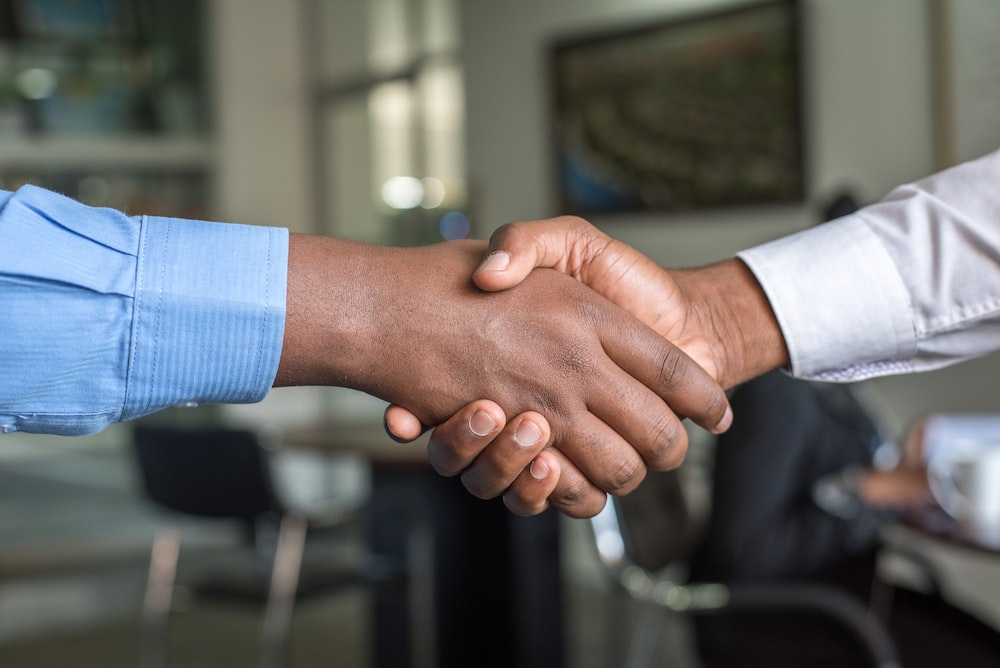While you may see eye-to-eye with B2B stakeholders across the globe when it comes to common business goals and project workflow, meeting them face-to-face can be tricky for several reasons. Cultural, lifestyle and social status differences are only the surface of what business trip etiquette aims to amend in order to ensure that all parties involved feel equal and appreciated throughout the meet-and-greet. We asked our contributor, a blog writer at TrustMyPaper and GrabMyEssay and an avid traveler, Marques Coleman, to share his experience about business etiquette and how to make your business trip both sufficient and comfortable.
According to Fit Small Business, 75% of millennial business travelers consider traveling a benefit to their jobs, while more than 40% of business trips typically involve leisure portions where networking, cultural introductions, casual lunches and other activities take place. This opens a plethora of opportunities for you to not only serve as a representative of your company but also as a cultural and national ambassador of your home country.
Whether you are a frequent business traveler or preparing for your first outing, business trip etiquette is something worth keeping in mind at all times. That being said, let’s take a look at some of the basics of business trip etiquette so that you can successfully refer to this model during your B2B travels.
Expect Jet Lag & Culture Shock

When it comes to cultural differences, it makes no difference whether you jump to a country next to yours or to a different continent altogether. The same can be applied to the feeling of “jet lag” or the notion that you have spent some time traveling to a different location with a business meeting in your mind.
It’s important to take both culture shock and jet lag into consideration when you decide to take a business trip abroad due to several reasons, most crucial of which concern your personal mood, energy, food intake and other related factors. Inform yourself about the travel time, local cuisine, the welcoming party, as well as the weather, business agenda and other info which will help you not only pack well but also travel with a clear mind, ready for corporate matters.
Find a Local Assistant
Depending on your personal know-how on local culture, language and lifestyles, finding a local assistant to tag along with you might be a great idea. They are not only helpful in terms of getting to know the country/city/area you will travel to, but they can also assist you in terms of professional networking as translators.
Local assistants can help in a variety of ways, such as looking for a place to stay for your business trip or to provide you with recommended public meetings or food places. Make sure to look for a local assistant if you are traveling alone or in a business group without a colleague familiar with your target destination’s etiquette.
Inquire about the Culture
As we’ve mentioned previously, different regions have culture-specific quirks, idiosyncrasies, and rules which will require proper research on your part prior to the business trip itself. Traveling to locations with unique cultures such as India, China, Russia, Argentina or a number of other countries with specific cultural developments and histories can be both exciting and scary for a business traveler.
Make sure to inform yourself about the culture of the country, region, and city you will be visiting as much as possible via web-based portals, blogs, and YouTube videos. Exhibit an interest in their culture, habits, and lifestyle, at least as a curious observer, and your hosts will be more welcoming and accepting of your business proposals as a result.
Inform about Communication Etiquette

When it comes to formal and informal communication, cultures vary drastically depending on their histories and lifestyles. For example, Scandinavian countries such as Denmark and Norway might appreciate a more calculated and professional approach throughout your business visit, while Balkan countries such as Greece and Serbia might be open to more a casual, friendly tone of voice.
Kristin Savage, Head of HR at Trust My Paper and a contributor to Studicus spoke on the topic recently: “Informing yourself about the communication standards and business etiquette of the country you are about to visit can determine the success of your trip as a whole. Avoid taboos, ask the hosts about pressing public matters and show interest in your industry’s development in that country. That way, you will not represent your company in a positive way but also earn points as a human being for your understanding and empathy with the culture and happenings.”
Be a Diplomat, not a Critic

You will undoubtedly come across cultural differences, specific foods, drinks or other offerings that you do not like or agree with, ethically or morally. However, given the nature of your business trip, you should keep your mind focused on the task at hand and be diplomatic about your responses and reactions.
Take an objective stance when it comes to trying new foods, exploring the local area or if your business partners make, to their eyes, culturally appropriate decisions about your common project. Don’t give in to your emotions or offend your hosts by outright refusing to try new things or by being too rigid in your stance as a business representative – aim for a healthy balance of personal moral standards and decisions made for the good of your professional career and company as a whole.
Be Mindful of Social Media Posts
Just as different countries treat cultural habits and lifestyles differently, so they treat social media in drastically different manners. Some countries such as China have strict social media regulations and web activity monitoring in place throughout the region. Others such as the US have a more liberal stance on what you can or cannot post on social media when it comes to your travels.
Keep in mind that you should in no circumstance disclose business information or crucial data concerning your professional meetings on social media without proper, mutual curation and approval. Business posts on platforms such as LinkedIn can be mutually beneficial for your companies, while casual posts on Facebook or Instagram may harm your reputation in the long run – gauge the importance and necessity of social media posts about your business trip carefully before you publish anything.
Remember Your Priorities

Lastly, it can become overwhelming to travel to a different country, away from your colleagues, office and daily routine. It’s important not to lose sight of your business trip’s goals, personal priorities and to perform as expected given that you were sent to a different country as a company representative.
You can make it a habit to check in with your executive or team members while outside of the country and inform them of your current progress or ask for feedback in relation to your business trip. Remember that optimal performance during your trip will result in not only personal commendation and be rewarding for your personal career but also cultivate better relations between your two companies for the foreseeable future.
In Summary
Taking the initiative prior to your business trip and learning about local etiquette will get you one step closer to a positive outcome of the trip in question. While it’s beneficial to take things seriously and be focused on the job at hand, you should also feel blessed for the opportunity to travel and represent your company and local culture to others around the globe. Doing so will allow you to expand your personal network, learn interesting things about different peoples and become that much more valuable to your employer as a result of your experience.
In case you need a deeper understanding of business ethics in a certain country or a helping hand of a local assistant during your business trip, feel free to leave your request and we’ll find you a resourceful local assistant to help you with your business trip!
Leave a Reply